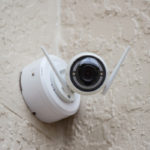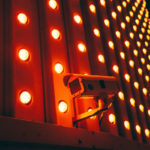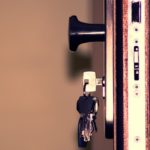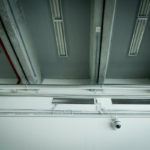What You Need To Know About Cloud Cameras
What are cloud cameras and why should you invest in them?
A cloud-based security camera, or cloud camera, is a security camera that is closely related to the IP camera. Both cloud and IP cameras connect to the internet, however, with cloud cameras, you need not assign IP addresses to each camera. Cloud cameras make it simple – all they need is a power cord and an Ethernet cable and you’re set. Cloud cameras will come with software or an app that enables streaming and remote camera management via smart device or computer.
On the upside, cloud cameras offer excellent benefits for users. First of all, these cameras are extremely easy to set up as they essentially plug-and-play. They are compact, affordable and accessible.
Cloud-based cameras also allow you to access your video feed virtually anytime from any place. While IP cameras can also provide this benefit, they require a bit more extensive set up to ensure proper performance and security.
In addition, cloud cameras boast automatic updates, device software improvements, and security vulnerability patching. Maintaining any additional hardware and software is no longer a worry.
With these advantages come some disadvantages. Cloud cameras come with monthly fees and limited functionality depending on how much you are willing to pay. And your provider may raise prices at any time, thus you must pay the higher price or purchase a different camera.
Privacy concerns and security risks are another factor, as your video feed is available on an external server. Also, because your cloud camera will be constantly sending data over the internet, it can slow down connection for other internet activities. For those in areas with slow service or data caps, cloud cameras may not be a feasible option.
The important thing to remember is that there are numerous security cameras with different features on the market. You should evaluate your needs and research different types of cameras to determine which type is right for you. If you need some help or have any questions, please feel free to contact us at 888-203-6294. You can also browse our selection of top quality security cameras at cost-effective prices online at SecurityCamExpert.com. Connect with us on Facebook, Twitter, LinkedIn, and Pinterest.
Summer Travel & Cyber Security
Whether you are traveling for business or pleasure, cyber security is important and essential. You should always do your best to safeguard your personal data, but business travelers should take extra precaution as both personal and business data may be at risk. Before you leave, be sure to review and apply these smart cyber security tips.
Lock Devices
Most devices (smartphones, laptops, tablets) have a security setting that enables you to lock your device using a PIN number or fingerprint ID. You should enable this on every device. In addition, you should change the PIN numbers you regularly use. Should your devices be temporarily misplaced or forgotten, this will be the first line of defense against a security breach.
Be Cautious Of Public Wi-Fi
If you are traveling abroad, the laws and regulations that govern cyber security are typically not the same as those in the United States. Although free Wi-Fi access can be very appealing, it can be particularly vulnerable to security issues.
Avoid any unencrypted Wi-Fi networks – ask the hotel about its security protocol before connecting. Be extra cautious using Internet cafes and free Wi-Fi hotspots. If you must use them, avoid accessing personal accounts or sensitive data while connected to that network.
Disable Auto-Connect
If your phone has a setting which allows your device to automatically connect to Wi-Fi networks as you pass through them, turn it off before you leave. It can be convenient when you are at home, but it is not something you should allow while traveling.
Disable Bluetooth Connectivity
Along with your Wi-Fi connectivity, you should also disable Bluetooth connectivity. Bluetooth signals can come from anywhere, and if left on, nearby assailants can connect to your phone and potentially hack into your device.
Minimize Location Sharing
When traveling, it may be tempting to share your experiences in real time on social networks. The problem with this is that it creates a security threat at home. Knowing where you are helps criminals determine that you’re not in your hotel room or at home, leaving these areas vulnerable to physical intrusion. Limit what you post online or save it until after you have returned home to minimize potential threats.
Install Anti-Virus Protection
One of the easiest and most effective ways to keep personal and company information secure while traveling is to utilize anti-virus protection. Choose a trusted brand of security and be sure to regularly update this software as new versions become available.
Update Operating Systems
Much like anti-virus software, your operating system should be kept up-to-date. This also applies to apps on your phone, especially those which you use regularly to conduct financial or personal business.
Update Passwords
Password management is ever important, so if you are going to travel, be sure to change all of the passwords you regularly use. If you must create a PIN for a safe or security box in a hotel room, make sure it’s unique and not something you commonly use. Don’t skimp on password creation either. Take the time to create something that will keep a criminal out of your personal property. Once you return home, you can changes all the passwords back.
In addition to these tips, you should also review the laws and regulations governing cyber security in each country you plan to visit. Be aware of your surroundings, networks, and devices to reduce the risk of cyber threats. Share your own cyber security tips with us on Facebook, Twitter, LinkedIn, and Pinterest.
For a comprehensive selection of quality IP and HD security cameras to suit your budget and needs, please visit SecurityCamExpert.com. For questions or to request a free quote, please call 888-203-6294.
Types Of Night Vision Security Cameras
Security cameras with night vision are crucial for monitoring your property around the clock. Night vision technology allows you to capture usable images in low to no light conditions. This is extremely helpful as most burglars prefer to lurk around in the darkness.
Whether you are safeguarding your home or business, night vision security cameras are a great investment. Before you start shopping, review the different types of night vision to decide which will work best for your surveillance needs.
Low Light Night Vision
Low light night vision is also known as image intensification as it relies on image intensification technology to deliver colored night vision in very low light. Please note that in order to produce a color image, these security cameras need some available light.
Low light night vision cameras use an image intensifier which is a vacuum-tube based device. Electrons are emitted through a vacuum tube when the light strikes a charged photocathode plate. These electrons then strike the microchannel plate that cause the image screen to illuminate with a picture in the same pattern as the light that strikes the photocathode (on a frequency that the human eye can see). The image is said to be “intensified” because the output visible light is now brighter than the incoming light.
Benefits
- Despite needing some visible light in order to record, low light night vision cameras outperform IR night vision cameras.
- These are the only security cameras that can produce a color image in low light level conditions.
- You can find these cameras at cost-effective prices.
Infrared (IR) Night Vision
These days, most security cameras come with built-in infrared LEDs to provide night vision in low light or no light conditions. One of the most important features of these cameras is the infrared cut filter or infrared cut removable.
The IR cut filter is a mechanical shutter design – it is a piece placed between the lens and the image sensor, controlled by a motor or an electromagnet. These are used with color CCD or CMOS cameras to produce accurate color images.
When IR cut filter is activated, it will block IR light and allow only visible light to pass through. When the ICR is turned off, IR light will be allowed and images will turn into black and white mode.
If it’s controlled by a light sensor, at twilight, it simply sends a remove signal to the IR cut filter so that more light could reach the image sensor of the camera, thus, a black and white image is produced.
It is important to know that IR security cameras can be affected by glass reflection or window glare at night. Your video may be washed out due to overexposure of lights at night. If necessary, turn off the IP LEDs and any other LED indicators on your security camera.
Benefits
- Infrared night vision cameras can record in pitch black condition without additional light.
- These cameras are the most inexpensive, use less energy, and are very efficient.
Thermal Night Vision
Thermal night vision cameras have a unique lens that allows IR energy to pass through it. The focus light then hits a sensor that scans the information and draws from several thousand points in the field of view. This process creates a thermogram (an intricate temperature pattern) which quickly develops and then transforms into electric impulses, which are directed to signal processing unit that translates the information into data for the visual.
Created image displays as various colors that correlate to the amount of IR energy emitted. Instead of intensifying light, thermal night vision uses heat and can see no matter the light level. Thus, even in total darkness and poor weather conditions, thermal imaging technology allows users to detect and see at great distances.
Benefits
- Thermal cameras are the only solution to address a visible image contrast to see at night.
- As mentioned, these cameras are completely immune to smoke, dust, and anti-CCTV surveillance devices (visor glasses, infrared laser glasses).
- Government agencies, security companies, and large corporations rely on thermal security cameras for many security applications because they eliminate false alarms.
For a wide selection of quality security cameras, surveillance system packages, and more, please visit SecurityCamExpert.com or call 888-203-6294. You can also connect with us on Facebook, Twitter, LinkedIn, and Pinterest.
Improve Your Business Surveillance System
Video surveillance is a great asset for businesses, keeping properties, inventory, and employees safe. Should anything happen, security cameras provide video footage and evidence to help capture suspects. And while your surveillance systems are meant to secure your business, you must also protect and maintain your system to ensure optimal performance. Here are some smart business surveillance tips.
Secure Your Surveillance System From Hackers
Many business surveillance systems utilize IP security cameras, which require Internet connection to allow you to view your feed remotely. Unfortunately, this makes IP surveillance systems susceptible to hackers. Thankfully, there are ways to keep them at bay:
- Change your system password every three months and practice proper password management.
- Never keep default usernames and passwords. These can easily be found online, thus, leaving them in place gives hackers free admission to your system.
- Secure your business network – an unsecure network risks leaving open access points in your system, giving hackers the opportunity to access your surveillance cameras.
- Never connect your cameras to a public network. Hackers can easily access information (like video credentials) through shared networks.
- Choose cameras with encrypted signals – encryption disguises information sent over the internet, making it challenging for hackers to identify valuable data.
Avoid Video Surveillance Legal Liabilities
As long as you inform employees and customers that they are being recorded, as well as refrain from monitoring areas with a reasonable expectation of privacy, your security system should be free from legal liabilities. Here are the areas where people have a reasonable expectation of privacy:
- Bathrooms
- Dressing rooms
- Exam rooms
- Locker rooms
- Hotel rooms
Remember, the laws vary from state to state. Be sure you fully understand the laws regarding video surveillance, do not invade customer and employee privacy, and review the camera privacy laws in your state.
Strategically Place Cameras
Security cameras locations are crucial for complying with laws, as well as the effectiveness of your system. Be sure your camera locations meet these requirements:
- Install cameras in sensible areas, such as offices, stockrooms, behind cash registers, above entrances and exits.
- Place security cameras under sufficient lighting to provide clear quality images.
- Position cameras to capture wide angles for fuller surveillance coverage.
Store Video Footage In The Cloud
Cloud storage solutions offer excellent benefits and are a great alternative to traditional analog systems. You may consider employing cloud solutions as they are:
- Cost-effective – Cloud storage eliminates the need for onsite digital video recorders (DVR) or network video recorders (NVR).
- Accessible – When your data is stored in the cloud, it can be viewed remotely via smartphone, tablet, or desktop web browser any time.
- Flexible – New users, locations, and cameras can be easily added to your existing infrastructure without rewiring.
Increase Business Security With Additional Camera Features
Additional features can help to enhance your surveillance system overall. Some additional benefits include:
- Adjustable Angles – PTZ cameras can pan, tilt and zoom and cameras that are mobile allow for multiple views.
- Artificial Intelligence (AI) Technology – Security cameras hosted on monitoring platforms powered by AI alert users about important or unusual events.
- Day/Night Capabilities -Night vision cameras utilize infrared LEDs and are helpful for those who need around the clock surveillance.
- High Resolution – These cameras provide the best quality images.
- IP-based vs. Wired – No video cables are required for IP systems.
- Weatherproof – Weatherproof cameras and housing are built to withstand outdoor conditions to extend performance.
- Remote Access – With the mobile app, you can use your smartphone to view footage and remotely control your system.
We offer a wide variety of affordable security cameras and surveillance systems – browse our stock online at SecurityCamExpert.com or call 888-203-6294 to speak with one of our experts. You may also connect with us on Facebook, Twitter, LinkedIn, and Pinterest.
Security Tips For Your Home
Summer is here and many of us are planning and going on vacations, leaving homes unoccupied and prime targets for burglars. Don’t be a victim – be sure your home is protected whether you are work or away on a trip. Here are a few simple ways to keep your home safe this summer and year-round.
- Lock Doors & Windows
It should be a habit by know, but sometimes we may forget. Before leaving your home or going to bed, be sure to lock the doors and windows of your home. Some smart home devices may even allow you to lock your doors remotely in case you forget, or if an authorized guest needs to access your home while you’re away. - Use A Home Security System
A home security system is a great defense against burglaries. The mere presence may make burglars think twice about targeting your home. These days, there are various systems available to suit different homes and budgets. If you need assistance choosing the right system for you, give us a call 888-203-6294. - Check The Locks
Much like every other area of your home, locks need maintenance, too. For the best security, install deadbolt locks on outside doors, and use the appropriate locks on sliding doors. Don’t forget to secure any pet doors before leaving as well. - Always Occupied
Your house should always appear occupied, whether you’re home or not. If you are away, use a timer to turn lights on and off to make it appear that someone is home. - Reduce Shrubbery
Don’t make it easier for burglars to hide on your property. Keep your shrubs and trees trim, especially those near upper levels and windows. - Secure Your Garage
Secure your garage like you do with your home. With the exception of detached garages, the garage has an entrance into your home and is a common target for burglars because it is often overlooked. The door leading to your garage should have a lock (a deadbolt for added security) and it is wise to park inside to make it hard to tell whether you’re home or not. - Lights
Use exterior lights to illuminate your perimeter. Motion sensing lights can be helpful for dark areas of your lawn, too. - Mail
If you’re going n vacation, stop your mail delivery or have someone pick it up. Built up mail is a tell tale sign that no one is home. - Outdoor Wires
Telephone lines and electrical wires should not be easily accessible. If these are exposed and easy to get to, intruders will attempt to disarm systems by cutting the wires. - Change The Locks
If you lose your keys, move to a new home, or have someone move out of your home, change the locks on the doors.
Share your home safety hacks with us on Facebook, Twitter, LinkedIn, and Pinterest. You can browse our stock of quality surveillance equipment and security cameras online at SecurityCamExpert.com. Contact us at 888-203-6294 to request a free quote or schedule a site survey.
Summer Water Safety
Water safety is especially important in the summertime, when beach and pool days and lake trips are abundant. Keep children and loved ones safe by heeding these essential water safety tips.
General Tips
- Look for U.S. Coast Guard approved labels.
Lifejackets should have labels that read “US Coast Guard Approved” or “USCG approved,” otherwise you can assume they are not safe. As your child grows, their lifejacket should meet their new weight, and should be replaced when rips, tears, or fraying straps are present. And remember, any items filled with air (arm floaties, rafts) are not considered life saving devices. - Assign adult, non-distracted Water Watchers.
At least one adult, non-distracted Water Watcher should be monitoring children in and around water at all times with no distractions (conversations, cell phone, reading, etc.). The Water Watcher should always be within reach and is usually safest in the pool with the children. For social gatherings, 10-15 minute Water Watcher shifts are recommended. And remember, if a child goes missing, always check the pool/water first. - Take family CPR lessons.
Learning CPR can make a difference while waiting for emergency personnel to arrive. - Schedule water safety & swim lessons.
Drownings and near-drownings are much more likely to occur with children that don’t know how to swim or are being supervised by adults that don’t know how to swim. While there are still risks with children who know how to swim, knowing how to and practicing proper water safety can significantly reduce the risks.
Open Water
- Have a safety plan in place.
Whether you’re at the lake or the beach, you should implement a safety plan before anyone gets anywhere near the water. The “Toe In/Vest On” policy is recommended, which basically means that if a toe is in the water, a life jacket must be on.
- Know the water conditions.
Conditions in lakes and oceans can vary on a daily basis. From clear to murky and calm to rough waters, it’s important to know the conditions before getting in.
Pools
- Install four-sided fences with self-latching gates.
Implementing this safety mechanism could prevent 50-90% of childhood drowning and near-drowning accidents. The fence should at least be 4 feet (ideally 5 feet) high with a self-closing gate that only opens out. In addition, pool gates should have child proof locks and remain locked when the pool is not in use. If you have pool and/or spa covers, they should be strong enough to support the weight of multiple children. Any doggie doors that have direct access to the pool area should be rerouted as well. - Create and follow all pool rules.
Your guest should understand your expectations about watching children in the water and abide by your pool rules. You may even consider creating a Water Watcher schedule so that non-distracted adult Water Watchers can work in 10-15 minute shifts. - Use pool/door/child alarms.
Doors and windows that open directly to the pool area should be equipped with alarms. These alarms can alert you when children may be going outside to the pool. Furthermore, pool surface alarms can alert you when anyone or anything falls into the pool. For added security, you can even put an alarm on your child that is activated when they are submersed. - Update pool drains and cleaning systems.
Pool drains and other cleaning equipment have powerful suction that could create a dangerous situation and should be avoided. Because swimsuit straps, hair, and other items can easily get caught, safety drain covers should be used as a prevention method.
Share your own water safety tips with us on Facebook, Twitter, LinkedIn, and Pinterest.
Keep an eye on your pool and property with quality security cameras from SecurityCamExpert.com. Let us help you choose the right surveillance system to suit your needs and we can take care of the installation, too! To learn more about our products and services, please call 888-203-6294.
Avoid These Surveillance Mistakes
Installing a home surveillance system can be rewarding, providing you a sense of security and peace of mind. However, the process of choosing, installing and using the right cameras is a delicate task. It’s important to evaluate your needs, understand what features will help you accomplish your goals, and execute installation and use correctly. Avoid errors in the process by reviewing these common security camera mistakes.
- Mistake: Forgetting to secure indoor and outdoor surveillance cameras.
If you fail to secure your surveillance cameras, they can be susceptible to tampering and vandalism. To keep your equipment safe, install your cameras at least 9 feet above the ground. You may also want to consider investing in vandal proof and weather proof housing, especially for outdoor cameras. - Mistake: Thinking cameras are able to multitask.
They cannot. When you are installing your security cameras, you must think of the task you want your camera to perform and where to place it. Prepare a diagram for your home security system so you can plan out camera placement. This will also allow you to figure out how many and what type of cameras you need for optimum security. - Mistake: Placing cameras at the highest point.
While this tactic will give you a larger view, you will not a get a detailed look at any person’s features, making it impossible to identify potential criminals. You may want to try a PTZ (pan/tilt/zoom) security camera which allows you to view large areas while enabling zoom for a more detailed look without compromising quality. - Mistake: Using cameras without Wide Dynamic Range at doorways and windows.
Wide Dynamic Range (WDR) plays a big role when part of an image is extremely dark but another part is bright. Since lighting conditions indoors and outdoors can vary drastically, this feature is especially essentials for cameras near windows and doorways. - Mistake: Failing to provide enough lighting.
If you require night time monitoring, you should invest in night vision security cameras. However, if your camera does not have night vision, be sure to provide enough lighting so that your cameras can record clear footage. Remember, putting cameras too close to bright lights will cause the picture to be disrupted. Also, if an outdoor camera is pointing to direct sunlight, this will cause stripes in the images.
Have any security mishaps or tips to share? Connect with us on Facebook, Twitter, LinkedIn, and Pinterest.
SecurityCamExpert.com offers quality surveillance equipment along with expert installation! Visit us online to browse our stock or call 888-203-6294 to request a FREE quote or schedule a site survey.
Should You Install Indoor Security Cameras?
Security cameras offer home and business owners peace of mind by allowing vigilance over properties. As a homeowner, installing an indoor security camera can help you check in on pets or simply watch over your home while you’re away. Although these benefits are appealing, there are a few things to consider before deciding on installing indoor security cameras.
Worries
It’s true that security cameras are meant to put your worries at ease, but at the same time, they can feed your anxiety. Because you can check in on things at any time, you may find yourself obsessively monitoring your feed.
To minimize this, set up a camera with motion detection so that it may alert you when there is activity. If you have pets, you can filter out their activity so that you are not inundated with false alarms.
Hackers
With internet-connected security cameras, you run the risk of hackers gaining access to your camera. This type of attack is much more common with cameras that have little to no built-in security. Luckily, there are ways to combat these risks. First, you should invest in well-know, higher quality security cameras that have better built-in security. Once you have chosen a camera, change any default logins and use strong, hard-to guess passwords. Also, be sure that your home Wi-Fi network is also highly protected.
Pets
As previously mentioned, indoor security cameras provide an easy way to keep an eye on your pets when you’re away. But when it comes to motion detection, they can easily trigger false alarms. Once you adjust your settings to accommodate pet activity, the security camera can be a great help. Whether you’re missing your pet while you’re away or if you’re working at home, security cameras allow you to see what they are up to.
Valuables
Of course, security cameras are meant to keep you safe from burglars. Their presence alone can help to deter criminal behavior. But in the case that it does not, it can provide useful footage that can be submitted as evidence.
Do you have security cameras installed at your home or business? How have they helped? Share your experiences with us on Facebook, Twitter, LinkedIn, and Pinterest.
For a great selection of quality IP and HD security cameras for your home or business, please visit SecurityCamExpert.com or call 888-203-6294 today!
Benefits Of Dome Security Cameras
You have likely encountered dome security cameras when out in public, whether you’re shopping at the store or visiting the bank. They are small, dome-shaped objects attached to ceilings or walls. The dome of the camera is usually heavily tinted, and they are often vandal proof, weather proof and have built-in infrared LEDs. If you are considering installing security cameras, here are a few reasons why dome cameras are a smart choice.
Visual Deterrent
Part of the allure of security cameras is that their presence is effective in deterring bad behavior. With dome cameras, they are inconspicuous enough to blend with décor, however, the heavy tint on the dome is relatively hard to miss. Whether or not an incident occurs, you will have video footage to review and potentially use as evidence.
Ambiguity
As mentioned, the heavily tinted dome not only protects the camera, but it makes people question which direction the camera is aimed. People may also be unsure of whether or not the camera moves to monitor a wider area. This ambiguity helps to further deter any criminal acts. Some may opt to install dummy dome cameras as a low-cost alternative. Remember that it is not guaranteed that a dome camera will prevent all criminal activity, thus, it is better to install a real dome security camera.
Variety
Of security cameras, dome cameras are relatively inexpensive and are available in a wide variety of styles. As mentioned, if you are installing your cameras outdoors, you may want to look for weather proof and vandal proof dome cameras. This will ensure that your cameras can withstand harsh environmental elements, as well as physical damage should someone attempt to tamper with your security cameras. And if you need around-the-clock surveillance, infrared dome cameras offer night vision, allowing your camera to record in low to no light situations.
If you need help choosing a dome camera, or other security cameras and equipment, please contact us at 888-203-6294. Browse our stock of quality surveillance systems and more online at SecurityCamExpert.com and connect with us on Facebook, Twitter, LinkedIn, and Pinterest.
The Advantages & Disadvantages Of Nanny Cams
Nanny cams can give parents peace of mind when they’re away from home. They can be hidden or installed in plain sight to monitor the nanny and children’s activities and behaviors. While some see as it as helpful, others may see it as an invasion of privacy or an uncomfortable situation.
Of course, there are rules and regulations in place to combat these issues. Recording a video of anything that happens in your home is legal, however, you must have a legitimate reason for doing it. Monitoring your baby or caregiver falls into that category, but regardless of whether the surveillance camera is hidden or not, they must be located in public areas of the house such as the kitchen or living room. Video recording in areas where there is an expectation of privacy (such as the bathroom or your bedroom) is not permitted.
When it comes to audio recording, you must inform and get the consent of the person being recorded. Because of this, often times nanny cams do not record audio. If you do record a video with audio that has evidence of abuse, the footage would be inadmissible in court and you could be liable for breaking privacy laws.
With that said, if used appropriately and within legal limitations, nanny cams can be a useful tool for parents. If you are considering installing a nanny cam, here are some of the pros and cons.
Pros
- Peace Of Mind
Especially with new parents, it can be hard leaving your children in someone else’s care. With a nanny cam, you can ease your worries by checking in on your children to see that they are safe. - Nanny Behavior
If your children are young, they may not be able to tell you what is happening while you’re away. You can’t always rely on feedback from friends and neighbors who may see your children and nanny together at the park or school. The nanny cam allows you to monitor behavior and address any issues accordingly. - Connection
For parents who feel guilty for going back to work and missing quality time with their children, nanny cams can enable them to feel more of a connection as they can periodically check in and see what their kids are up to.
Cons
- Trust
Aside from privacy issues, the person being recorded may feel violated or offended if they find a hidden camera. To combat this issue, it’s best if you are upfront and honest about your plans to install a nanny cam. Most nannies are comfortable working in the presence of a nanny cam. - Misuse
Your nanny cam should be used to deter or prevent potential neglect or abuse, not used to capture it. Communicate your expectations and take action if you feel something isn’t right. - Legalities
As mentioned, you must abide by the law. Look into your state’s laws regarding privacy and recording and be sure that your nanny cams and surveillance system are in compliance.
How have nanny cams helped you as a parent? Share with us on Facebook, Twitter, LinkedIn, and Pinterest.
Need help choosing the right nanny cam or surveillance system for you? Contact us at 888-203-6294 and we will be happy to discuss your options. You may also browse our stock of IP security cameras and other surveillance equipment online at SecurityCamExpert.com.









